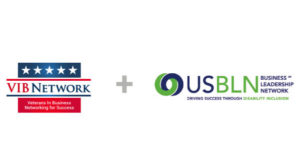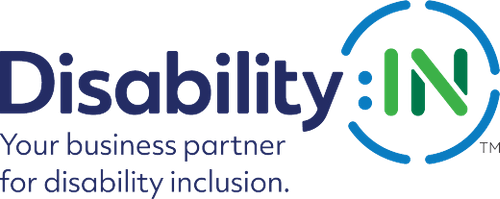USBLN And VIB Network Announce Partnership Agreement to Benefit Veteran Business Owners

The USBLN and the Veterans in Business (VIB) Network are proud and excited to announce a new partnership agreement that will enhance the business opportunities and professional development of veteran-disability owned businesses and service-disability veteran owned businesses. Both organizations recognize the impact veterans have on the American economy, and are eager to help with their growth and success.
The VIB Network is a non-profit organization that advocates for all veteran businesses, including service-disabled veteran-owned small businesses (SDVOSBs), and disabled veteran business enterprises (DVBEs). They understand the need for connecting veterans to business resources and contract opportunities, and strive to build connections between veteran businesses, major corporations and government agencies. They also provide resources, educational workshops, and outreach opportunities to help streamline the process.
The accomplishment of veteran entrepreneurs is remarkable. U.S. veterans own 2.5 million businesses and employ as many as 5.8 million people. That equates to $210 billion in annual payroll and $1.2 trillion in sales. The USBLN and the VIB Network share an interest to enhance the business opportunities of those veterans. Through this partnership, both organizations will be better able to achieve that common goal by proving distinct benefits to its members.
The USBLN’s Disability Supplier Diversity Program (DSDP) is the leading third-party certifier of disability-owned businesses. This nationally recognized program offers three different certifications: Disability-Owned Business Enterprise (DOBE) Certification, Veteran-DOBE (V-DOBE) Certification, and Service-Disabled Veteran-DOBE (SDV-DOBE) Certification. A Disability-Owned Business Enterprise Certification (DOBE) is available to any business at least 51% owned, managed and controlled by a person with a disability. The Veteran-DOBE Certification (V-DOBE) is available to a business enterprise owned by a veteran with a disability, not related to their time in service. The Service-Disabled Veteran-DOBE Certification (SDV-DOBE) is available to a business enterprise owned by a veteran with a disability, whose disability was caused by their time in service.
By collaborating in such a manner, the USBLN and the VIB Network will create increased opportunities for their members. They will also continue to respectively advocate for disability inclusion and equality, and provide education, training, outreach and support for veterans in business. Visit usbln.org for more information about the Disability Supplier Diversity Program (DSDP), and the VIB Network for more information about helping veterans in business grow and success.
DOBE Spotlight Series: Betta Beasley
Prior to founding 2rbConsulting, Betta Beasley, the company’s CEO, led an interesting professional life.
DOBE Spotlight Series: Artura Taylor
Artura credits USBLN certification and the USBLN Conference for building the type of relationships that have helped her grow as a business owner and a leader. “After attending the USBLN conference last year, I’ve been able to secure calls with companies I would never have been placed in front of.”
DOBE Spotlight Series: iDisability™
iDisability™ is an enterprise-wide eLearning solution. It was developed in a partnership between Joyce Bender and Andrew Houghton, both USBLN Certified DOBEs, and DOBE Host Committee Members.
DOBE Spotlight Series: Mona Lisa Faris
Mona Lisa Faris, the publisher of DiversityComm, originally planned to be a professor of intracultural communication and public speaking when she realized she needed to make an important decision: start a teaching fellowship, or take an entrepreneurial path and begin publishing a newsletter on diversity.
DOBE Spotlight Series: Pat Graves, Caption First
Caption First, a USBLN® Certified DOBE™, has been providing real time captioning services for almost 30 years. The company is dedicated to delivering communication alternatives for people who are deaf, hard of hearing, or have trouble with comprehension and fluency.
